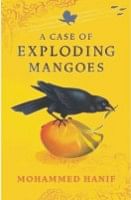Life, Death and Destruction

My summer holiday seems very distant now, but this year, for first time, thanks to Dr. William Radice, I discovered the City of London Festival which has music, art and architecture events across London: he had invited a small group to a wonderful concert. This included a choral sequence "He Begins His Great Trance" with three sections, 'The Dark', 'The Music' and 'The Fire', based on Tagore's poetry translated by William Radice, performed by the BBC singers and set to music by Param Vir, the Indian-born composer. In an explanatory note Vir says:
"I was drawn to this text not only for its direct and dramatic account of creation, preservation and destruction, the principle attributes respectively of the three gods (Brahma, Vishnu and Shiva) featured in the poem by Tagore, but equally for its pointed and vivid imagery involving sound and music. The musical references, which form the heart of the middle movement, are not all surprising, coming as they do from a poet who was also a renowned composer. My work takes its title form the last line in Tagore's poem. The dramatic shape of the poem is that of an inverted arch..."
The programme included imaginative Sanskrit-inspired choral works by Olivier Messaien and Jonathan Harvey and was performed in an austere but beautiful church St. Giles Cripplegate: a perfect setting for the music. St. Giles is located in, and dwarfed by, the Barbican Arts Complex but it has an immensely rich history: it is one of the few mediaeval churches to have escaped The Great Fire of London in 1666 and has a rich history. There are also busts of John Bunyan, Daniel Defoe, Oliver Cromwell and John Milton, but Milton is also buried there, his name inscribed in a simple, unadorned slab of stone, embedded in the aisle floor, near the pulpit.
In Pakistan, there is much uncertainty and insecurity in Pakistan these days amid daily suicide bombing, spiralling prices and a collapsing currency, but now that Ramazan is over, Karachi's literary activities have picked up again. At the launch of Alice Albinia's book Empires of the Indus the audience was quite amazed that a young British woman should have had the courage to explore the Indus River from its delta in Pakistan to its source in Tibet, in these troubled and violent times. In answer to a question she said she had decided at the outset, that could not allow fear to impede her and that she put fear aside, in a separate compartment of her mind. The passages she read out, including her observations of Karachi life, the Sheedis of Sindh, and her journey across Bannu, Waziristan in a burqa, revealed the wonderful quality of her writing, her eye for detail and her exploration of the multi-layered history of the Indus and the people who inhabit its shores today. Her fascination with the Indus began eight years ago, while she was living in Delhi and was reading the Rig Veda. Alice, who is fluent in Urdu, became increasingly taken with the idea of discovering for herself the Indus and Pakistan - the land across the border - that the river traverses. Empires of the Indus received the Royal Society of Literature Jerwood Award for a work-in-progress and has been short-listed now for the 2008 Guardian First Book Award.
Earlier, Mohammed Hanif's witty first novel, A Case of Exploding Mangoes which has received much critical acclaim, drawn comparisons with Catch-22 by Joseph Heller and The Hour of the Goat by Mario Vargas Llosa, was longlisted for the 2008 Man Booker prize. Originally conceived as a murder mystery; it poses the question: who killed General Zia-ul-Haq? And why? In true Agatha-Christie style, the novel provides everyone with a motive and an opportunity, except that this clever book is a political satire, which has no sacred cows: Hanif lampoons everything including the old-fashioned crime novel. The fictitious narrator, Ali Shigri, a Pakistan Air Force cadet, believes Zia to be responsible for the death of his legendary father Colonel Shigri. He is determined to kill Zia, but finds himself incarcerated and interrogated by a Hollwood-style ISI officer, because his lover and fellow-cadet, Obaid has disappeared with a PAF plane. The novel juxtaposes Shigri's narrative, with the imaginary, but vivid, daily concerns - political, personal and matrimonial - of General Zia-ul-Haq and others in the corridors of power: the novel leads up to the mysterious plane crash which killed Zia, the entire army top brass and the American Ambassador in one fell swoop.
Since there persists a popular theory that the fatal bomb had been hidden in a case of mangoes loaded onto the plane, Hanif uses a wonderful sense of the absurd to weave this in with fictions of his own. Also, he used humour to make a telling comment on the hypocrisy and cruelty of Zia's regime: the book resonates across decades and cultures to describe the terrifying nature of any dictatorship. Hanif, who was briefly a PAF officer, before he drifted into journalism, has been living in London for the past ten years, where he headed the BBC's Urdu service but is now moving back to Karachi. His stage play 'The Dictator's Wife' in which his wife, the actor Nimra Bucha played the title role, was premiered at the Edinburgh Festival this summer.

 For all latest news, follow The Daily Star's Google News channel.
For all latest news, follow The Daily Star's Google News channel. 




Comments